
This August, 24 year-old Hanifa Yousoufi from became the first Afghan woman to summit Noshaq (7492m), the highest mountain in Afghanistan. Growing up in war-torn Kabul, Hanifa supported her family through cleaning jobs and - like many girls in Afghanistan - didn't have the opportunity to attend school or play sport. Through her climb, Hanifa hopes to inspire other women to be active agents in their freedom in a country where women's rights are slowly improving.
In 2015, Ascend: Leadership Through Athletics, a US based non-profit organisation working in Afghanistan to empower young women through sports-based leadership training, led a group of Afghan women with the aim of making history as the first women in the country to summit Mir Samir. The team embarked on a 17-day expedition against the advice of their elders in an attempt to change perceptions of Afghan women, taking in three of the region's highest peaks, all over 4,876m. They named one unclimbed mountain 'The Lion Daughters of Mir Samir Peak.' A film documenting the project was produced, 'Ascending Afghanistan' (tomorrow's Fri Night Vid), which received a Special Jury Mention at Banff Mountain Film Festival and won Best Culture film at Kendal Mountain Festival. The organisation has since continued to introduce women to mountaineering and the outdoors, culminating in Hanifa's historic climb this year.
Marina LeGree, executive director of Ascend, kindly captured Hanifa's words in the interview below. She told UKC: 'Hanifa is a fantastic person who we hope will be an inspiration to women in Afghanistan and beyond.'
LeGree added: 'As we train to achieve tangible climbing feats of known peaks and first ascents, our long term vision is to develop strong female role models and leaders who are equipped and motivated to help their society transition to peace.' More details about the team's accomplishments as athletes and as volunteers in their local communities can be found on the organisation's website.
'One of the biggest obstacles that we face are the beliefs that exist in this society. People feel that women are not supposed to be mountain climbing, women are not supposed to go out of the house and we are changing this stereotype.' - Ascending Afghanistan
Hanifa - when and how did you start climbing/mountaineering?
I started mountaineering in 2016 with the Ascend Athletics team. It was a night hiking trip and my first adventure.
What did other people think of your choice to climb? What hurdles did you have to overcome to start climbing?
My family were not happy. They were thinking that a girl should not do this sport. They were not happy that I was doing sport at all. Now that I have accomplished a great thing in my life I am not facing those negative thoughts.
How did you feel before the mission to climb Mt. Noshaq? What preparation did you do?
This summer, we all prepared for the Noshaq trip and were feeling good about it. Before leaving we were told that the expedition leader couldn't come because her husband got injured. We were really sad. Luckily, two other women were able to lead the trip.
To prepare we had to go to the gym and lift weights, run on a treadmill for an hour and a half each day, do long runs around 15k once a week, and we also had to participate in a daily program with the team. We also went to Bamyan for 10 days where we had long days hiking, running, camping, and skiing.
Noshaq was closed to climbers for over 30 years due to civil war and Taliban rule, and there were Taliban attacks nearby at the time of your climb. How did this affect your plans/make you feel?
As we got ready to climb Noshaq, there was a fight in Badakhshan between the Taliban and the national army. We were not sure what was going to happen. This affected the plans, we delayed the flights, and flew to another place and drove for a day to the village where we needed to get organised and leave with porters to the valley. I was very worried and was not feeling good in the place, but when we got to the base I felt better.
How did it feel to stand on top? What did it mean to you, and what do you hope your ascent can mean for other women?
When I was on the top I felt very good, not only for me but for all Afghan women - that shows how strong they are. Now I am a role model for other Afghan women who inspires them to believe that if I could do it they also can do it. I think if we give opportunities to Afghan women they can do what they want to do, but there are few opportunities for Afghan women and they are very limited in the choice to leave their house and do what they want.
What are your climbing goals for the future?
My goal is to continue climbing and help the Ascend team and those girls who love mountaineering and help them to be mountaineers.
I want to be an expedition leader and lead not only Afghan women, but also women from other countries. I want to pave the way for Afghan youths to do what they want. I want to climb the highest peaks in the world and go to the mountains outside Afghanistan and meet climbers from other countries. I want to start an organisation that helps other Afghan women.
Hanifa also featured in our UKC Humans of Climbing social media series:
Stay tuned for the Ascending Afghanistan film tomorrow night...
- SKILLS: Top Tips for Learning to Sport Climb Outdoors 22 Apr
- INTERVIEW: Albert Ok - The Speed Climbing Coach with a Global Athlete Team 17 Apr
- SKILLS: Top 10 Tips for Making the Move from Indoor to Outdoor Bouldering 24 Jan
- ARTICLE: International Mountain Day 2023 - Mountains & Climate Science at COP28 11 Dec, 2023
- ARTICLE: Did Downclimbing Apes help Evolve our Ultra-Mobile Human Arms? 5 Dec, 2023
- ARTICLE: Dàna - Scotland's Wild Places: Scottish Climbing on the BBC 10 Nov, 2023
- INTERVIEW: Loki's Mischief: Leo Houlding on his Return to Mount Asgard 23 Oct, 2023
- INTERVIEW: BMC CEO Paul Davies on GB Climbing 24 Aug, 2023
- ARTICLE: Paris 2024 Olympic Games: Sport Climbing Qualification and Scoring Explainer 26 Jul, 2023
- INTERVIEW: Malcolm Bass on Life after Stroke 8 Jun, 2023



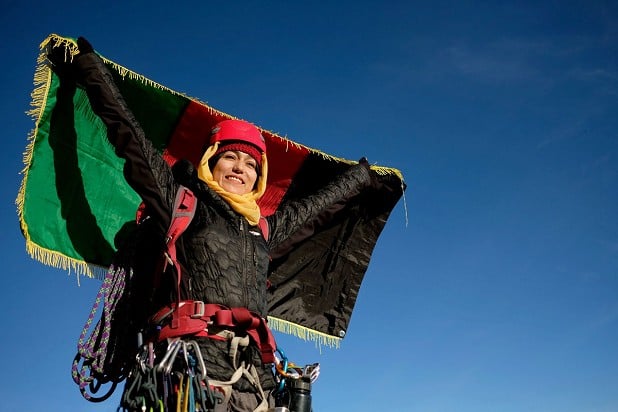
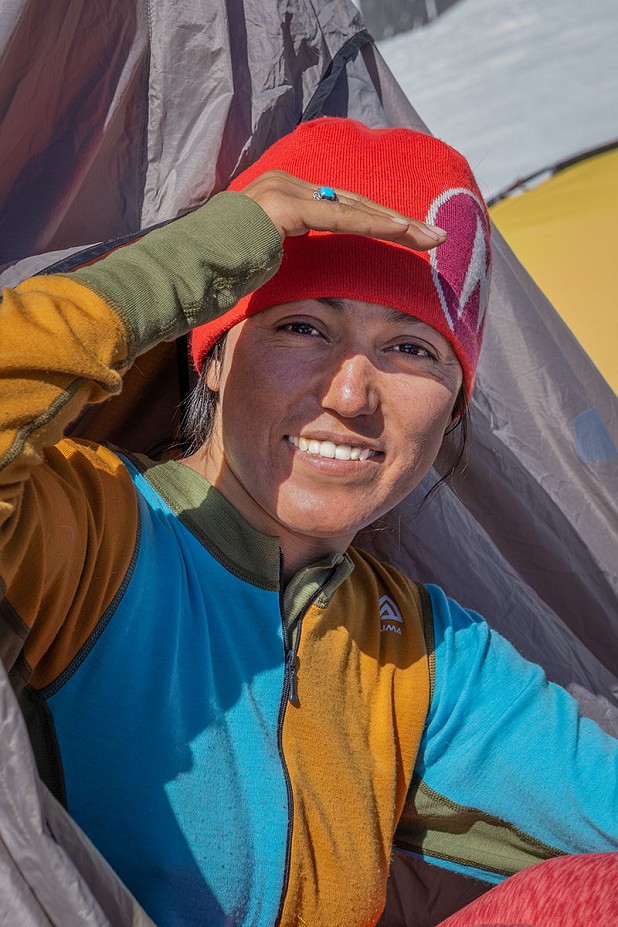

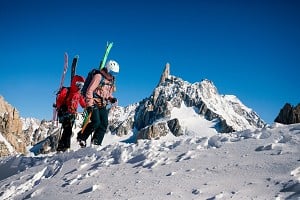
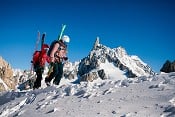
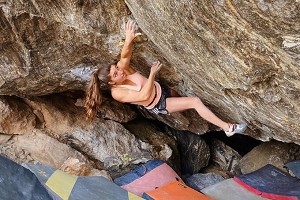
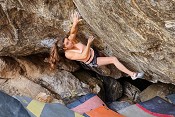






Comments